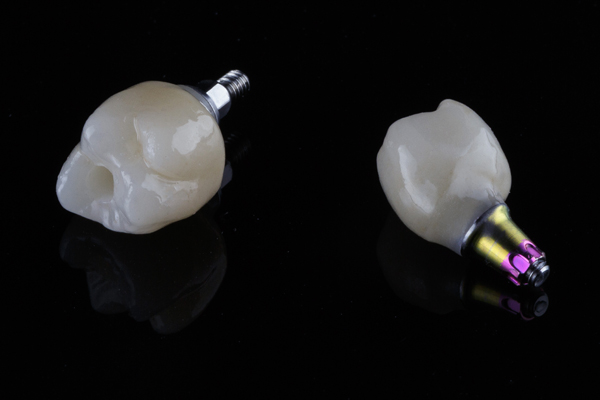What Procedures Can be Performed by Laser Dentistry?

Laser dentistry has been a popular method of dental care for the last several decades. Lasers are perceived as less painful and more effective than traditional dental treatment methods and can be used for a variety of procedures with a high degree of precision.
Laser dentistry procedures
With the use of lasers for dental procedures, patients experience less pain, less bleeding, and a faster recovery period than with traditional methods. Dentists also rely on lasers to perform procedures with a high degree of precision. Lasers offer an attractive alternative for a wide range of dental procedures.
Hard tissue procedures
The hard tissue of the teeth requires lasers with specific wavelengths to remove the carious structure while leaving behind the healthy dentin and enamel of the tooth. These minimally invasive lasers allow treatment with minimal stress to patients due to less associated pain, vibration, and sound during the procedure.
Laser dentistry can treat patients with tooth sensitivity to hot and cold. By focusing a beam of laser light on the affected tooth, the root tubules can be sealed to lessen the pain of hypersensitivity.
Tooth whitening procedures are improved through the use of laser dentistry. A peroxide bleach solution applied to the tooth's surface for professional tooth whitening is activated by the laser to accelerate the whitening process.
Lasers can be used for cavity detection through early identification of decay. They are also beneficial for filling cavities and providing tooth preparation for other dental procedures. The lasers are capable of killing bacteria in the tooth and stimulating the root to encourage long-term health.
Soft tissue procedures
Soft tissue lasers are specifically designed for the protection of the teeth, gums, and sensitive tooth enamel. Soft lasers enable procedures that are generally much less invasive and painful than traditional procedures and are usually performed without the use of scalpels or drills. Patients also experience less swelling and bleeding and a faster recovery when undergoing the following procedures:
- Soft tissue folds: Lasers can remove the soft tissue folds around ill-fitting dentures without the use of sutures or painful procedures.
- Tongue frenulum attachment: The skin fold under the front portion of the tongue that anchors the tongue to the bottom of the mouth is known as the frenulum. Children with a thick or tight frenulum are subject to problems with breastfeeding, speech, or becoming "tongue-tied." A laser frenectomy can treat the frenulum problem quickly and relatively painlessly.
- Reshaping gum tissue: When someone has a "gummy smile," where the gums cover the majority of the tooth, lasers are a quick and painless process for reshaping the gum tissue. Lasers can also reshape the gums as part of the dental restoration process to create a healthier tooth structure.
- Other laser uses: Laser dentistry commonly treats sleep apnea, removes benign tumors, treats temporomandibular joint dysfunction (TMJ), regenerates nerves, and treats cold sores, blood vessels, and scars.
Conclusion
Thanks to laser dentistry, professionals can complete a variety of procedures with a higher level of efficiency, enabling patients to experience a greater level of comfort.
Request an appointment here: https://www.mfgrassodds.com or call Michael F. Grasso DDS at (636) 777-7700 for an appointment in our Chesterfield office.
Check out what others are saying about our dental services on Yelp: Laser Dentistry in Chesterfield, MO.
Recent Posts
Many people are choosing laser dentistry options to correct gum conditions. Crooked, misshapen, and discolored teeth can ruin a smile. But gum problems can also make you feel self-conscious and want to avoid opening your mouth. Some gum issues can affect your oral health and overall wellness too. Instead of going to the periodontist's office…
Invisalign® is a popular teeth straightening treatment option that many general dentists offer. It is the preferred choice because the treatment process is known to be simple, discreet and less involved than that of braces. However, with that, it is also important to note that braces and Invisalign tend to target different problems.Want to learn…
Dental implants are a great option for replacing missing teeth. They can last a lifetime and look and act like your natural teeth. However, many factors determine how many implants you need to replace multiple teeth. While having a dental implant placed in your mouth that looks and acts just like your natural teeth sounds…
Oral injuries that lead to severe bleeding in the mouth count as dental emergencies. Blood clots have a more challenging time forming in the mouth, and deep cuts in the mouth can lead to significant blood loss without the care of an emergency dentist. Waiting up to a few weeks for a regular appointment is…


